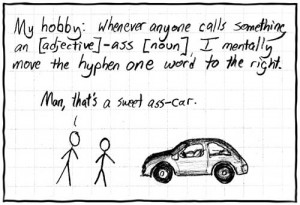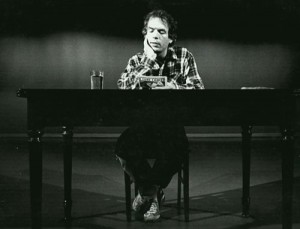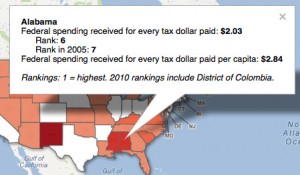I’ve written before about how much I appreciate ballot endorsements. I do what I can to learn what I can about candidates. But ballot initiatives? Constitutional amendments? They don’t get enough press and are written in arcane enough language that I need help. Help’s been a little tough to find, so here’s how I—a liberal Alabamian—am voting, with the best citations I can find.
Amendment 1 – YES
This vote [i.e., as it’ll go below, a YES vote] will continue to fund the Forever Wild Land Trust another 20 years. Endorsers include the Left in Alabama blog, the Alabama New South Alliance (and sister group the Alabama New South Coalition…hereby ANSA/C), and funnily enough, the NRA (presumably people will be able to hunt there). The Tea-Party aligned Conservative Christians of Alabama oppose, because it’s spending probably.
Amendment 2 – SURE
Yes vote will raise the amount for any bonds the state issues to $750 million. Gov. Bentley says it’s jobs. No one’s really coming out against it.
Amendment 3 – YES
This vote makes a landmark district in one specific county, but more importantly it’s the sort of amendment to vote YES on in order to keep pushing the message that this state needs home rule desperately and like we in Tuscaloosa and other counties probably shouldn’t be voting on this stuff. Even the Tea Partiers are on board.
Amendment 4 – NO
The controversial one. This vote [i.e. NO] would prevent our state’s constitution from saying “nothing in this Constitution shall be construed as creating or recognizing any right to education or training at public expense.” In short, voting NO asserts the right to a public education for all. Hence the Alabama Education Association saying vote NO. Also LiA. The ASNA/C says to vote yes (as of Oct 11), otherwise we’ll leave in some racist language, which makes us look bad. But like no way is it that only thing in the state or the constitution (to say nothing of this constitution itself) that makes us look bad. See here for a more detailed discussion.
Amendment 5 – YES
Another home-rule amendment. According to the Mobile Press-Register, the Prichard Water Board members make way more money than they should, which voting no here would help them keep. Everyone endorses except the members of the Prichard Water Board.
Amendment 6 – NO
A NO vote is an endorsement of the Affordable Care Act (which the independent Congressional Budget Office has repeatedly shown ) and leaves it applicable in the state. The CCoA wants you to vote yes, if that’s any surprise.
Amendment 7 – NO
Such a vote will leave union elections as they are. Fellow NO voters include the AFL/CIO, LiA, and the ANSA/C. The CCoA says to vote yes, thus giving employers more influence over how (or whether) their employees form unions. Like amendment 6, this is another state’s-rights attempt to stop recent progressive legislation passed on a national scale, namely the union-endorsed Employee Free-Choice Act.
Amendment 8 – NO
Another controversial one. A NO vote will leave legislators’ pay and pay policies where they are. Here’s how the Dothan Eagle has it broken down:
Supporters [i.e. yes voters] claim the amendment will lower the salaries of state elected officials and keep expenses under control.
Opponents say the bill could actually increase the amount of money legislators make due to extra expense claims.
Supporters include the two GOP legislators who proposed the amendment and the CCoA, because it undoes a pay raise the now-long-gone Democratic majority passed a few years back. Opponents include the ANSA/C. What little I know of the once-in-power Democrats is that there was some corruption and cronyism, so even though I feel that forces that long predate me are at work here I’m going with NO. Anyone able to chime in below please do.
Amendments 9 & 10 – YES
These votes will do little to change actual legislation in the state regarding businesses and banks, but they are a baby step toward constitutional reform. (More details at the Anniston Star.) Endorsed by LiA and the Alabama Constitutional Revision Commission. ANSA/C inexplicably oppose these amendments. The CCoA are, adorably, against #10 because it does away with the gold and silver standards.
Amendment 11 – NO
Or yes. Another home-rule amendment. I say no because I’m wary of prohibiting any future tax. ANSA/C also say vote no. CCoA says vote yes.
Local Amendment 1 for Tuscaloosa County – NO
This amendment wants to prohibit a future tax and I don’t want to prohibit any future tax. CCoA wants you to vote yes.
Links to Endorsements, etc.
Dothan Eagle’s summaries. (Amdmts 1-6; amdmts 7-11)
Alabama New South Alliance / Alabama New South Coalition
Left in Alabama
Conservative Christians of Alabama
A full list of all 11 amendments can be found on Ballotpedia.







